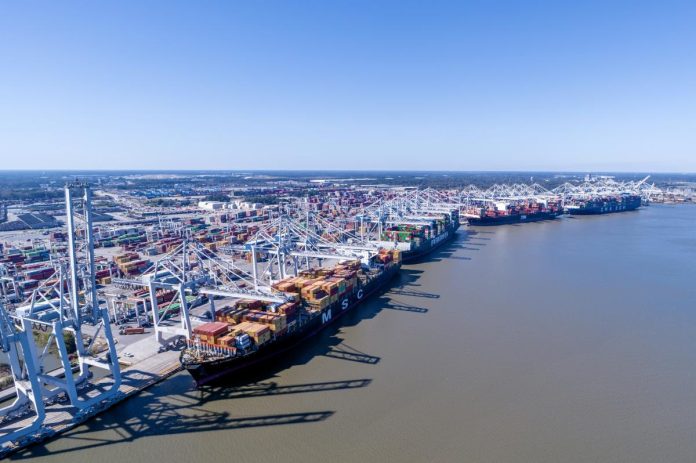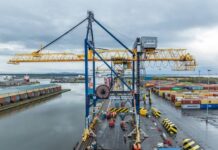
Port activity in Georgia delivered a significant boost to the state’s economy in fiscal year 2024, with the total economic impact rising by 7% compared with the previous year, according to a new study by the University of Georgia’s Terry College of Business.
The report found that Georgia’s ports now support 650,965 full- and part-time jobs statewide, an increase of 41,770 positions over fiscal year 2023.
In total, the ports account for 12% of all jobs in Georgia, underscoring their role as one of the state’s most powerful economic engines.
Georgia Governor Brian Kemp highlighted the findings as evidence of the state’s business-friendly environment saying that the Ports of Savannah and Brunswick are central to creating opportunities that ensure every part of our state can thrive.
According to the study, Georgia’s deepwater ports generated USD 174 billion in sales, representing 11% of the state’s total sales and an increase of USD 3 billion compared to FY2023.
The ports also contributed USD 77 billion to Georgia’s GDP (9% of the total), an increase of US$ 5 billion year-on-year, and USD 43 billion in personal income (7% of the total), up by US$ 3 billion.
The top three export commodity groups handled through Georgia’s ports were forest products, food, and automotive cargo, while leading imports included machinery, retail goods, and furniture.
Jeff Humphreys, director of the Selig Center for Economic Growth, who conducted the study, said that Georgia’s ports are among the state’s strongest economic engines. They not only drive growth across industries but are especially supportive of transportation, logistics, distribution, warehousing, manufacturing, agriculture, forestry, and mining.
Trade through the ports also generates substantial tax revenue, including US$ 10 billion in federal taxes, US$ 3 billion in state taxes, and US$ 3 billion in local taxes annually.
GPA Board Chairman Alec Poitevint added that the authority’s growth initiatives are self-financed through port revenues rather than taxpayer funding.
The Port of Savannah now handles 35 weekly vessel calls, 14,000–16,000 daily truck moves, and 42 double-stack trains per week, while the Port of Brunswick became the nation’s busiest gateway for autos and heavy equipment in 2024, moving 901,000 units of roll-on/roll-off cargo.
The findings are detailed in the University of Georgia’s report “The Economic Impact of Georgia’s Deepwater Ports on Georgia’s Economy in FY 2024”, the latest in a series of studies by the Selig Center for Economic Growth.





